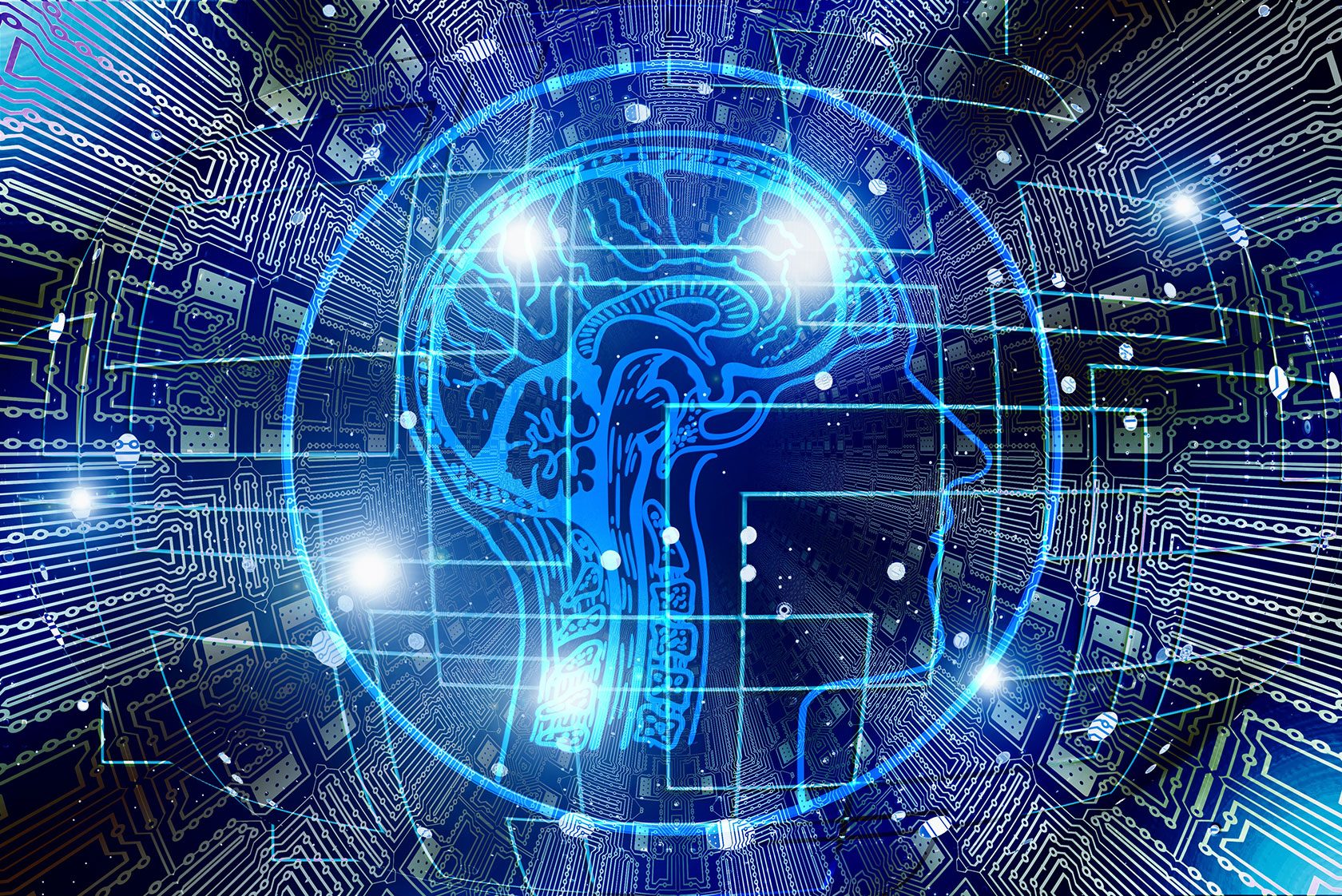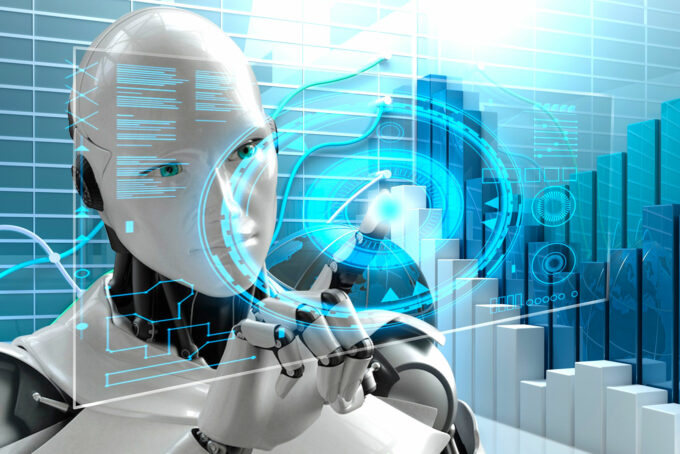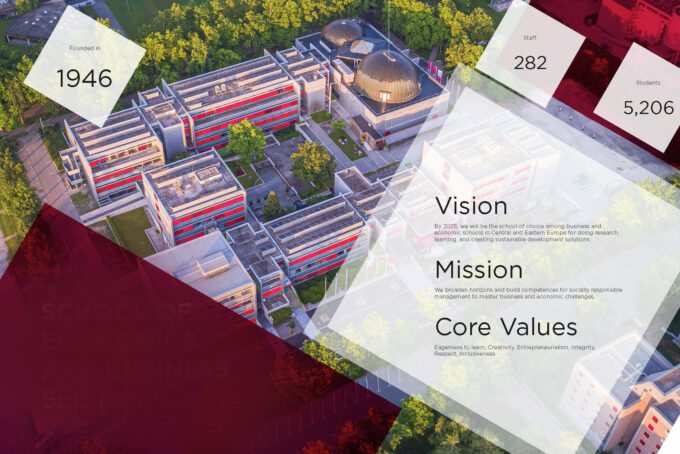
Artificial Intelligence: New Opportunities for Citizen Science, Research and Libraries
Artificial intelligence offers great potential for open science and libraries. A first-time network meeting in Schleswig-Holstein showed both how artificial intelligence can help researchers and citizen scientists (for example through content extraction and classification) as well as its drawbacks where academic work is concerned.
"Wenn wir in 20 Jahren noch KI nutzen wollen, bauen wir dann auch neue #AKWs ?" fragt Prof. #Kohlstedt von der #CAU blickend auf Energieeffizienz. Spannende Impulse zur Zunkunft #künstlicherIntelligenz in #Kiel. #KISH18 pic.twitter.com/udG4isENOx
— Jenny Jasberg (@jenny_jasberg) 31. Mai 2018
The inaugural “Artificial Intelligence (AI) – Opportunities for Schleswig-Holstein” network meeting was held at Kiel University of Applied Sciences on 31 May 2018. It was organised by Open Campus, the State Chancellery of Schleswig-Holstein, the Schleswig-Holstein Digital Economy cluster (DiWiSH) and Kiel University of Applied Sciences.
The event provided the first major platform for artificial intelligence in Schleswig-Holstein. Around 200 guests listened to some 50 short presentations lasting no more than four minutes. Long breaks encouraged networking. Live polls with Sli.do at the start and end of the event engaged the entire audience. Welcoming remarks from Minister-President Daniel Günther and from Dirk Schrödter, Head of the State Chancellery, illustrated the importance that politicians in Schleswig-Holstein attach to the issue.
#KISH18 eine kleine Geschichte wie KI auch bei der Thesis helfen kann 😉Toller Vortrag ! 💜 @Cluster_DiWiSH pic.twitter.com/4PCOhPg2U9
— dunjatodorovic (@dunjatodorovic1) 31. Mai 2018
Multifaceted artificial intelligence
The wide range of topics at the networking event included the development of services in the cloud (Frederik Bernard, 40° GmbH Innovation Lab), the safety of artificial intelligence (Prof. Dr. Dirk Nowotka, Kiel University), optimising logistics and services with AI to the benefit of the environment and society (Britta Blömke, FLS GmbH), and the massive increase in energy consumption requiring the exploration of new directions (Prof. Dr. Hermann Kohlstedt, Kiel University).
Eike Meyer (IBM) used the programme leaflet handed out during the event as an example to clearly explain what artificial intelligence actually is: humans have experience and contextual knowledge, which lets them recognise a programme leaflet of this kind. By contrast, an AI starts off like a child who has never seen or learned anything in its life – in the same way too, AI needs to be taught everything first. For practical applications, it is important to consider how added value can be gained through this.
Input, Input, Input! #kish18 mit fast 50 Kurzvorträgen – #datenschutz, #newwork, #partizipation und noch vielem mehr – Lohnt sich! #kiel #fhkiel pic.twitter.com/CQY8xhEOas
— DigitaleWocheKiel (@diwokiel) 31. Mai 2018
Auto-annotation, classification and ghostwriting
Some talks showed how interesting AI applications are for libraries. Frank Benson (VITEC GmbH) spoke about the auto-annotation of videos. His company extracts thumbnails from videos based on specific rules, timestamps them, analyses them, indexes them and makes them searchable – all automatically. This allows for significantly more extensive video analysis and improved findability. Direct scientific use is also possible, such as the automated identification and classification of animals in videos.
“Classifying trading cards by means of neural networks” was the subject discussed by Malte Delfs from Snapp.ai GmbH. With the Snapcardster app, trading cards are scanned in via smartphone camera and their classification is carried out by neural networks. This works on the 35,000 or so Magic trading cards, all of which look very similar.
Prof. Dr. Ansgar Scherp (ZBW – Leibniz Information Centre for Economics and Kiel University) presented three projects that employ AI for science. These involve firstly text mining, the use of AI for automated indexing; secondly, data mining for metadata retrieval in the EU’s MOVING project; and thirdly, the extraction of content from images to make scholarly illustrations searchable.
Artificial intelligence could also potentially solve the problem raised by Marc Pickard: there are enormous amounts of data in healthcare, but the difficulty with using these for research purposes is that they are not annotated.
Prof. Dr. Doris Weßels (Kiel University of Applied Sciences) ventured an entertaining yet alarming thought experiment regarding academic work. Based on example personas, she played out the “AI agents’ duel: the question of meaning for academic work at universities”. AI-assisted ghostwriting makes it possible to achieve extreme productivity gains in academic work. The scenario: ghostwriting services are provided by thesis platforms where the prevention of plagiarism is guaranteed, with an AI very quickly producing a good first draft of a bachelor’s dissertation. On the other hand, it is conceivable that professors could be offered not only automated plagiarism detection, but also academic reports delivered to them virtually at the push of a button. A potential boost to productivity, then, but at the cost of academic work losing its meaning.
Bei der KI-Veranstaltung in der #fhkiel geht es unter anderem um KI-Einsatz für mehr Tierwohl. Spannend! #KISH18 pic.twitter.com/ByCU4s3ahg
— Daniela 💭 (@danielasgedanke) 31. Mai 2018
AI highly advantageous to data analysis and citizen science
Artificial intelligence promises to greatly benefit research by facilitating the identification of causal relationships from observed data (Prof. Dr. Marciej Liśkiewicz, University of Lübeck). Harnessing clinical care and research data for AI would make it possible to reap huge rewards for research (Prof. Dr. med. Dr. Jens K. Habermann, University of Lübeck and University Hospital Schleswig-Holstein).
Artificial intelligence can assist researchers and citizen scientists in sifting through images. Johannes Brünger (Kiel University) reported on how this could improve animal welfare, amongst other things. The task of sifting through images of animals for slaughter, which humans find exhausting, could be automated using neural networks. This would provide valuable insights about and for animal welfare. “Fishing for plankton with neural networks”, the project presented by Simon-Martin Schröder (Kiel University), involves citizen scientists and experts reviewing plankton images on PlanktonID. Inadequate sorting was previously a problem here, but the work was made much easier and significant time was saved by the solution of combining human and artificial intelligence. The research group will also be applying this approach to medical research.
Grußwort des Ministerpräsidenten Daniel Günther bei der heutigen Netzwerk-Veranstaltung „Künstliche Intelligenz – Perspektiven für Schleswig-Holstein“. @Land_SH #KISH18 #schleswigholstein pic.twitter.com/dPz1oHYT6B
— Tourismus-Agentur SH (@Landesmarketing) 31. Mai 2018
Winning people over – sharing knowledge, building acceptance
When it comes to establishing acceptance of artificial intelligence, involving users in the development of applications is just as much a key to success as efforts in the field of education.
Prof. Dr. rer. nat. Tilo Mentler (University of Lübeck) spoke about human-centred and participatory design for artificial intelligence. An iterative process which includes users, such as energy control room employees within the framework of energy transition, can create AI acceptance. “Explainable artificial intelligence” is an important watchword in this context. The idea is to create a range of machine learning techniques that produce explainable models which allow users to understand them, trust them and manage them.
Dr.-Ing. Christian Hoffmann (University of Lübeck) talked about the ethics of innovative technologies. Issues here are research accountability, under the heading “Responsible Research and Innovation” (RRI), and an educational duty to society.
Dr. Christian Wiele (Atlantic Tech & Candy) currently sees a great divide between machine learning experts and the rest of society, with hardly any popular science publications about things like how a neural network functions. He has made it his mission to bridge this gap. After all, most data lies with people who know nothing of machine learning capabilities. They need to learn about machine learning so that they can assess and leverage its potential.
Prof. Dr. Björn Christensen (Kiel University of Applied Sciences) took a similar tack in his contribution on “empirical understanding as the basis for intelligent analysis and forecasts in practice.” Anyone who develops such methods should go out into the world and explain in clear terms how this intelligent analysis actually works. Yet empirical understanding needs to be promoted first.
A number of talks discussed what must be done in order to exploit the potential of AI. Educational efforts at various levels are required, including getting children excited about IT and AI while they are still at school. Science and infrastructural facilities could make important contributions here.
Künstliche Intelligenz in Schleswig -Holstein . Tolles Format. Danke an das Orgateam! #KISH18 pic.twitter.com/USYDgfmjS1
— Roman Spendler (@Mrktingflatrate) 31. Mai 2018
Additional information:
- Twitter #KISH18
- Some of the talks can be found in the Kiel Open Channel media library
View Comments

Fostering Open Science in European Countries: The Crucial Role of Libraries
Implementing open science requires systemic change and can be supported by national...



